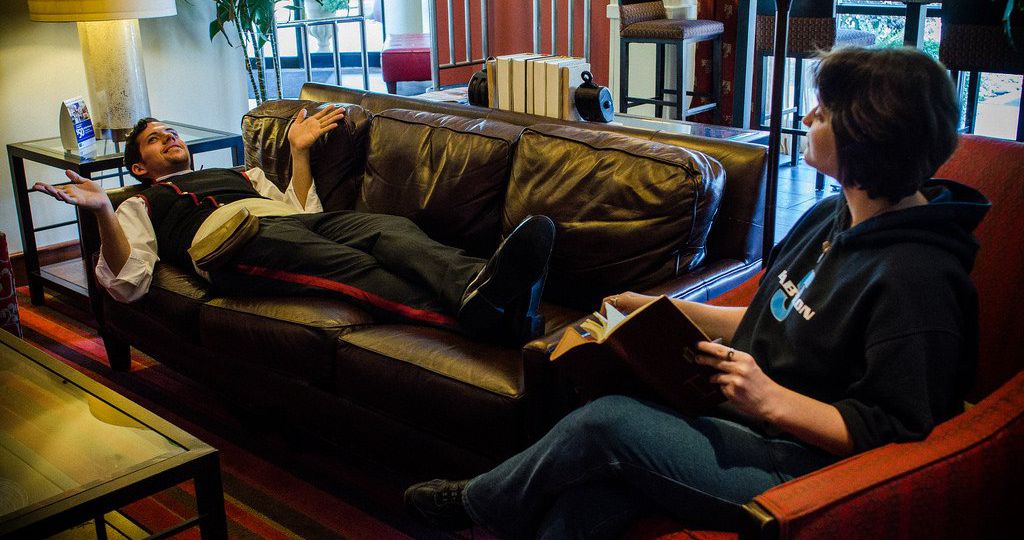
Heteronormativity. It’s the dominant social norm that constructs gender as a male-female binary, and mandates that sexual relations can happen only between these two genders, within the institution of a monogamous marriage, to fulfil the a purpose of procreation. In the imagination of the ordinary Indian, the possibility of a sexuality that is not heterosexual does not even exist. And it was the same for me.
I grew up believing, like most people, that I would find a man and ‘settle down’, have kids and live the normative script. Except that my desires led me down a different path. I was 22 when I fell in love with a girl in my college. It felt so right and yet it felt so wrong that I set off on a quest to find myself. I stumbled upon two feminist groups in Mumbai – Forum Against Oppression of Women and LABIA – a queer-feminist LBT collective (then known as Stree Sangam). Through them I was introduced to progressive spaces and the queer community. Like me, I found that people are living lives that step outside the normative, but these lives and struggles are usually kept secret or hidden. The shame and silence accompanying our desire makes sure that normative sexuality remains unquestioned. Given this context, I felt that it was critical to work towards a world where all sexualities and genders are equally expressed, recognized and accepted. As a mental health practitioner, I am well positioned to do this kind of work.
Over the years, I have worked with many clients across a spectrum of sexualities and genders. Our identities and desires are far too varied and complex to be boxed into such a narrow reality. We may be conditioned to aspire to an ideal of lifelong heterosexual marriage, monogamy and reproduction, but people’s lives are testimony to the fact that such an ideal is a carefully constructed myth. Norms are being broken daily and to my mind this is a cause for celebration! However, under the garb of morality, society often punishes people who deviate from the norm. They experience distress, isolation and shame and this is what comes up in therapy. The effects of marginalisation are often deleterious.
As a queer-feminist mental health practitioner, my way to understand realities is to examine the power relations that exist in our social locations, identities and structures. It means that being assigned gender female at birth as well as being queer, places me at some margins from which to challenge these power hierarchies. It further means that I critique my own positions of privilege. My therapeutic practice takes an affirmative stance on sexuality and sexual rights. It takes into account the oppressive nature of heteronormativity and the implications on us, also conceptualised as minority stress (Meyers 1995, 2003). A queer-feminist perspective joins the dots between our right to desire and the growing right wing agenda to consolidate power by instilling in us fear of the ‘other’. Conservative controls are put on our bodies and our feelings and these constrict the multiplicity and diversity of our sexualities and genders from being expressed. These controls on sexualities and genders continue to perpetuate and uphold hierarchical social structures of caste, class and more. A 2012 report by CREA sums it up, “In India, the control of women’s sexuality, mobility, and labour can often be traced to the historical emphasis on purity and lineage, which restricts the distribution of wealth and property across class, caste, religion, and ethnicity. Inter-caste marriages are considered transgressive, and the response to them may go as far as honour killings. Marriages between able-bodied individuals and people with disability face opposition. Lesbian relationships undercut the idea of procreation and perpetuation of the family.” An affirmative practice takes all this into account while working with clients. It helps them navigate through feelings of internalised stigma and reach a space where they can negotiate a life based on their own terms.
There is an urgent need for mental health practitioners in India to incorporate these perspectives. Some of these find mention in ‘Gay-Affirmative Counselling Practice- Resource and Training Manual’, which was published in 2013 by Saksham and Tata Institute of Social Sciences. The manual points out “affirmative counselling with gay clients is not a new theoretical model of counselling or psychotherapy but instead can be applied to any of the models that counsellors may be working with. What makes a model of counselling an affirmative one is the use of modifications in practice to incorporate the issues and stressors inherent in living as a sexual minority in a heterosexually constructed world.” This manual uses case examples and case studies to provide strategies and interventions to work with queer clients in an affirmative manner.
My queerness may have led me to embrace queer-feminist politics but I do not believe that one needs to have a queer identity to do this kind of affirmative work on sexualities and genders. Any mental health practitioner who believes in social justice must have a queer-feminist perspective that they bring into every aspect of their life and work. When practitioners and their clients, engage with non-normative intimacies using affirmative approaches, they will be able to examine their own lives and privileges critically. Thus, not just in therapy but outside of it too, they will begin to articulate these non-normative realities and many more will join the process of destabilizing the dominant social constructs!
This article was originally published here.